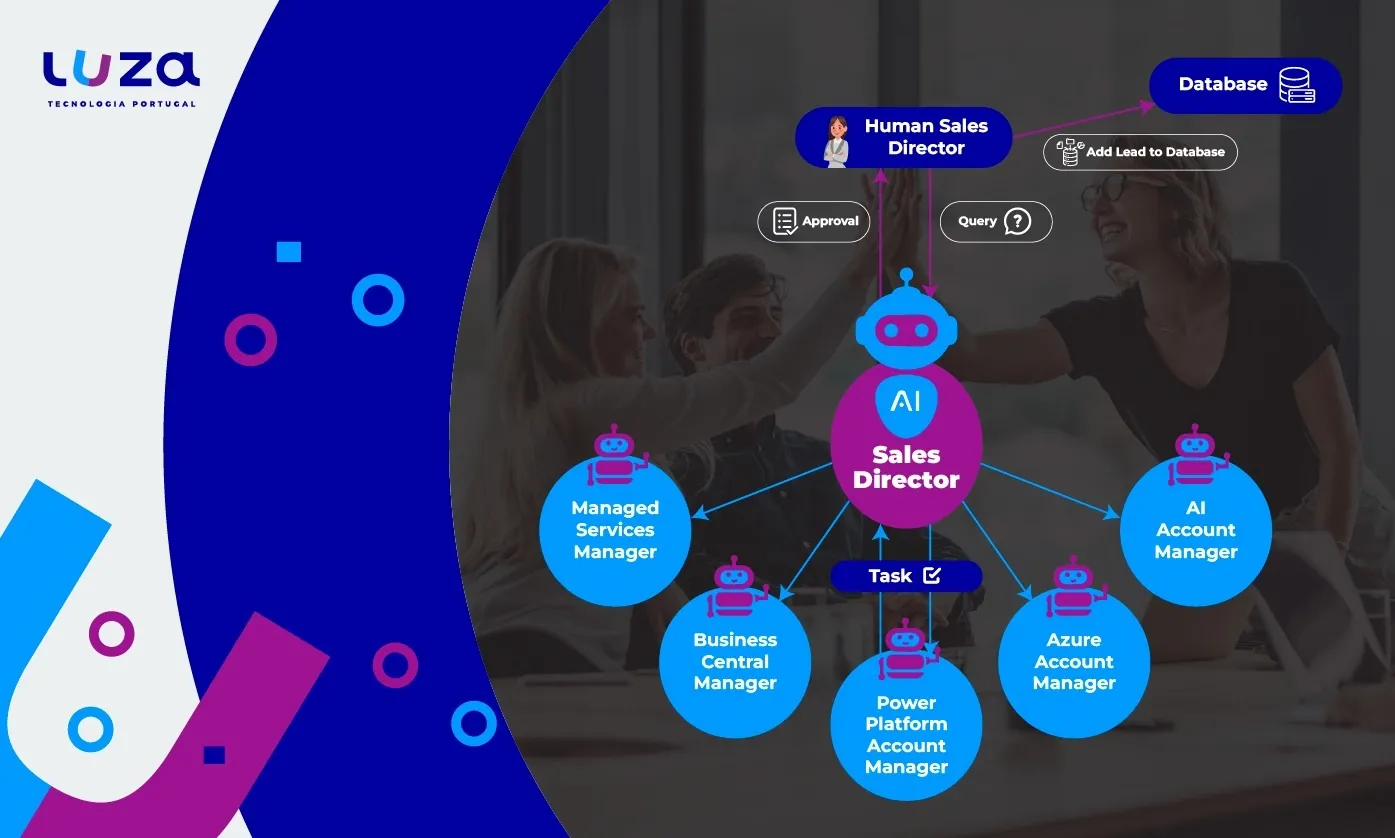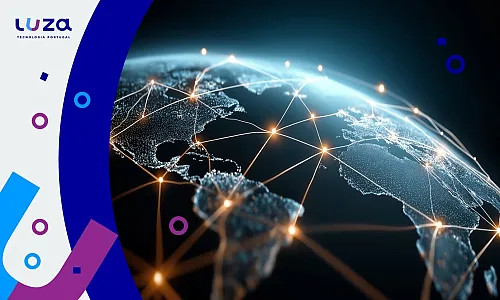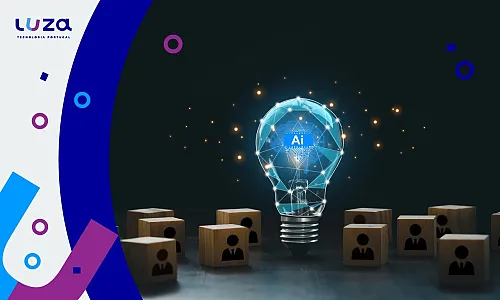From Lead to Deal: How AI Transforms Sales
Sales today require more than speed and automation. It requires intelligence, flexibility, and the ability to bring the right expertise into the conversation at the right time. Traditional automation is linear, but real-world sales processes are dynamic. That is why we are introducing our AI-driven sales solution powered by Handoff Orchestration.
What is Handoff Orchestration?
Handoff Orchestration means that AI agents can delegate tasks dynamically to other specialized AI agents, depending on the content of their output. Instead of following a rigid workflow, each agent analyzes the situation and decides which specialist should handle the next step.
This approach also enables Human-in-the-Loop (HITL) scenarios. When an AI agent faces ambiguity or requires explicit approval, it can pause execution and request human feedback before moving forward. At the end of the workflow, the conversation may have passed through multiple specialized agents and human validation, ensuring a high-quality and trustworthy outcome.
Why It Matters for Sales
Our sales environment involves multiple areas of expertise: AI, Azure, Power Platform, Business Central and Managed Services and more. Each of these domains has dedicated specialists and specific requirements. Traditionally, qualifying and routing leads across these areas require manual effort, back-and-forth communication and constant coordination.
With Handoff Orchestration, this process becomes seamless.
- Leads identified through Bing searches are automatically processed by an AI agent.
- Specialized AI agents, such as the AI Agent, Azure Agent or Power Platform Agent, enrich the lead with context relevant to their domain.
- If a critical step requires explicit approval, for example adding the lead to the CRM, the workflow pauses and escalates to a human approver.
- Once validated, the process resumes, with other agents stepping in when their expertise is needed.
For example, imagine an AI Sales Director discovers a potential customer through Bing, a UK-based company showing interest in Power Platform solutions. Once the prospect is identified, the data is analyzed, and relevance is checked. The PowerPlatformAgent then enriches the opportunity with product-specific context. If needed, a HumanApproval step is triggered, asking a sales manager to confirm whether the lead should be added to the CRM. After approval, the workflow continues, and other agents such as AzureAgent or ManagedServicesAgent can step in if the lead has broader needs.
The result is a validated, multi-step process where AI agents collaborate seamlessly across all business domains and humans only intervene when truly necessary. This ensures smoother routing, fewer bottlenecks and higher-quality leads that reach the sales team ready for engagement.
The Future of Sales is AI-Orchestrated
The future of sales is not just about automation: it’s about intelligent orchestration. AI agents can route leads to the right specialist, enrich information, and collaborate seamlessly, with humans stepping in only at critical decision points. This balance enables faster responses, smarter decisions, and higher conversion rates.
Benefits of Handoff Orchestration in Sales
- Dynamic routing: leads are automatically sent to the most relevant specialist.
- Human-in-the-loop flexibility: humans intervene only at strategic moments.
- Seamless collaboration: multiple AI agents work together without losing context.
- Better outcomes: sales teams receive high-quality, validated leads ready for engagement.
Smarter AI, strategic human input, better sales outcomes, this is the future of sales.
Business pros e cons
Pros
- Increased efficiency: automated workflows reduce repetitive manual tasks.
- Higher lead quality: leads arrive better qualified and enriched with relevant context.
- Scalability: enables handling more leads without proportionally growing the sales team.
- Flexibility: dynamically adapts to different scenarios and areas of expertise.
- Human + AI integration: critical decisions include human validation, ensuring trust.
- Faster response times: leads are processed and routed almost in real time.
Cons
- Initial complexity: implementation requires designing workflows and integrating systems.
- Technology dependency: failures in agents or integrations can block processes.
- Training required: teams need to understand how to interact with the new model.
- Adoption costs: initial investment in AI and infrastructure can be significant.
- Maturity curve: full value is realized only after continuous tuning and evolution.
This is how sales evolve: from scattered workflows to a truly orchestrated, intelligent, and customer-centric experience.
Ready to see how AI orchestration can transform your sales process? Let’s connect!
by Marcelle Guedes, Senior Data Scientist at Luza








